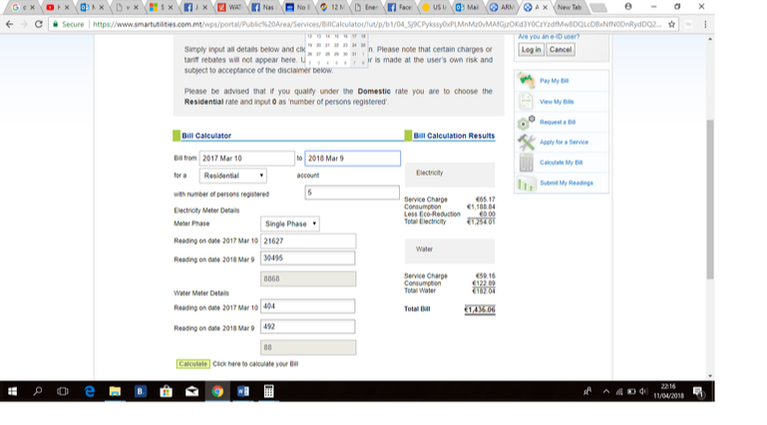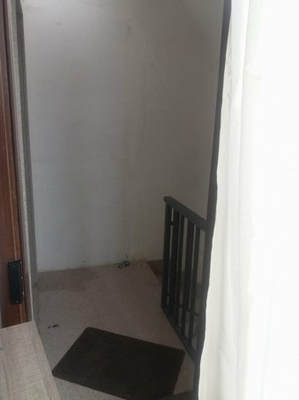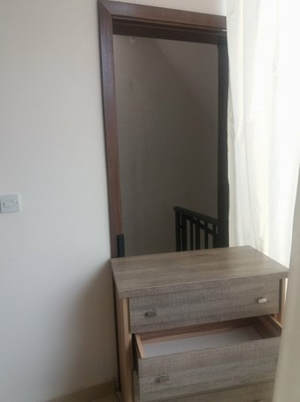The editorial describes how increased frequency of billing will be extremely likely to cost you more. This is because periods of low consumption will not offset periods of higher consumption. Incidentally this is the reason for the lengthy disclaimer on the online Arms calculator.
No, contrary to what some people think, the online Arms calculator cannot ever be wrong. The online calculator would consist of all the algorithms described in Understanding the Arms bill (1) , Understanding the Arms bill (2) and Understanding the Arms bill (3).
So what possible reason could there be for this disclaimer? The answer is that the cost of your consumption of electricity and water depends very much on the billing period.
For an actual example, please see here how our annual consumption of water and electricity over the last year cost us €1726.40 when calculated in six bills, every 2 months, whilst using the Arms online calculator, we can see that it cost us €1436.06, when the cost was calculated over the year.
This is the Malta Independent editorial: TMID editorial - Arms: Robbing Peter to pay Paul
In this article of TMID journalist Helena Grech, it is revealed that it is also the eco reduction that is being calculated pro rata. So consumers lose out yet again.
I am glad to see that UHM Voice of the Workers is launching an investigation into the Arms billing scheme. It is also asking the Malta Council for Economic and Social Development to look into this. (see here)
In March earlier this year, I gave this presentation to the Malta Council for Economic and Social Development, on how tenants in Malta endure extortion on top of extortion.
| Tenants do not exist for Arms |
This is extortionate - there are no eco reductions applicable on this tariff and no allowances per person for water at cheaper rates. So, no matter how many people live in a household, the cost of the water consumed is €2.19 per cubic metre for the first 33 cubic metres of water, followed by an eye watering €5.14 per cubic metre of water.
Contrast this to the €1.40 per cubic metre payable on the 33 cubic metres of water PER PERSON per year on the correct residential tariff. The cost of electricity per unit is also greater compared to the cost on the correct residential tariff.
In this presentation I also discuss the huge issue of prepaid meters, where landlords are free to charge whatever they want. Arms disclaims all responsibility for prepaid meters.
Every single aspect of the Arms billing system needs to be studied carefully. These are not one off anomalies. This is a systemic incorrect implementation of the Arms billing system. It is highly likely that this billing system is in contravention of the Water and Electricity Supply Regulations.
Finally, most disturbingly of all, there are strong indications that these contraventions are deliberate. Could it be that Arms is doing whatever it takes to fulfil its stated mission, to
"increase the business value of its business owners and partners by:
• Identifying and managing opportunities of revenue growth;
• Continually improving the quality and efficiency of the services it provides;
• And maximising its capital utilisation."?
Arms mission statement




 RSS Feed
RSS Feed